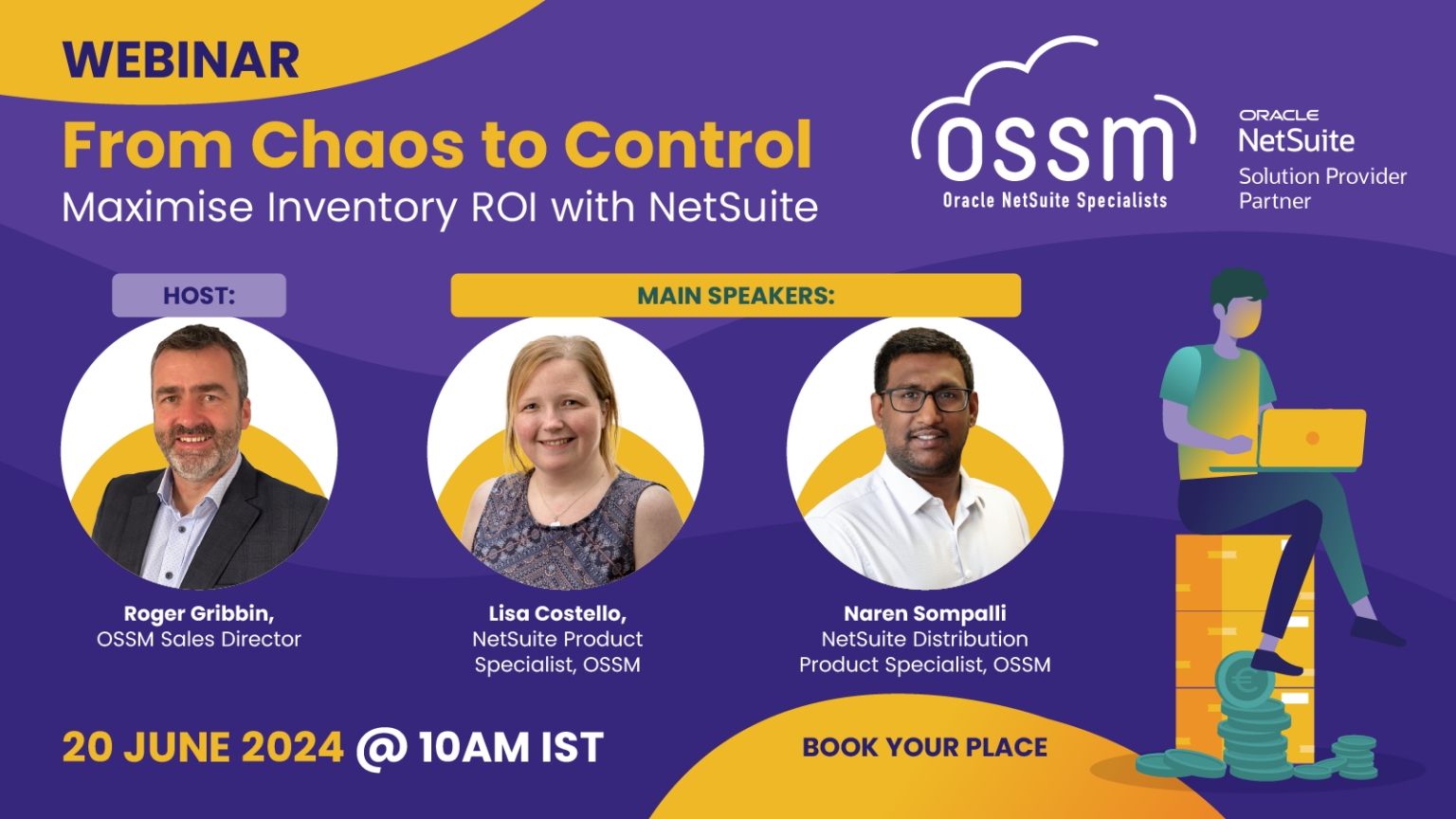
- Manufacturing - Solutions, NetSuite Manufacturing
The manufacturing industry has always faced pressure from cost, competition, and operational complexity. However, today’s environment is changing faster than ever. Input costs can rise overnight, customer expectations continue to grow, and even minor disruptions can ripple across entire supply chains. In this volatile climate, relying on spreadsheets, legacy platforms, or disconnected tools is no longer enough to stay competitive.
Modern Manufacturing ERP systems now play a central role in how organisations maintain control, make informed decisions, and respond quickly to change. NetSuite Manufacturing provides a cloud-based platform that brings core business processes together in one place, helping manufacturers improve agility, visibility, and operational discipline without introducing unnecessary complexity.
Manufacturing in an era of volatility
Manufacturers are operating in one of the most unpredictable business environments. Volatility is placing sustained pressure on margins and forcing frequent re-planning across operations.
Common challenges include:
• Rapidly changing material, labour, and energy costs, making it harder to protect margins and maintain stable pricing
• Intensifying global competition, with customers demanding shorter lead times, dependable delivery, and consistent quality – often at lower prices
• Continued supply chain disruption caused by geopolitical events, transport bottlenecks, and supplier instability, all of which require more flexible planning
• A tightening and ageing workforce, with younger employees expecting intuitive, cloud-based tools rather than legacy on-premise systems
Together, these factors are driving a fundamental shift in how manufacturing organisations think about technology. Leaders are re-evaluating their Manufacturing Software Systems and recognising that fragmented tools make it harder to react quickly or see the full impact of change. This is accelerating the move toward modern Manufacturing ERP solutions that provide a single source of truth across operations.
How manufacturers stay in control despite volatility
While many external pressures remain outside a manufacturer’s control, successful organisations are focusing on the areas they can influence. Increasingly, this means investing in Manufacturing ERP systems that support faster decisions and more resilient operations.
Key priorities include:
Faster, data-driven decision-making on the shop floor
Real-time insight into production status and inventory levels allows teams to respond immediately to issues, rather than relying on delayed, end-of-day reporting.
Greater visibility inside the four walls
By bringing together production, inventory, supply chain, and finance in one platform, manufacturers gain a clearer view of how changes in one area affect the rest of the business.
Right-sized teams supported by automation
Reducing manual data entry and limiting reliance on spreadsheets helps teams handle higher volumes of work with fewer errors and less rework.
Technology that supports frontline users
Modern ERP tools are designed to be intuitive and accessible, helping reduce administrative burden and improving adoption among operational teams.
By focusing on these controllable factors, manufacturers can build resilience and adaptability, even when external uncertainty remains high.
NetSuite manufacturing for modern businesses
NetSuite Manufacturing is designed for growing organisations that need cloud-based ERP that is capable of improving visibility, control, and scalability – without introducing unnecessary complexity into their technology landscape.
Built as a unified cloud platform, it brings together financials, inventory, production, supply chain, and warehouse management in a single system. This integrated approach replaces disconnected Manufacturing Software Systems and allows teams to work from one reliable set of data rather than across multiple tools and spreadsheets.
As a cloud service, NetSuite Manufacturing is easier to deploy, maintain, and scale than traditional on-premise solutions. It is particularly well suited to mid-sized manufacturers that need enterprise-level capability but want to avoid the cost, rigidity, and long-term maintenance burden associated with heavily customised legacy systems.
AI, automation, and the future of manufacturing ERP
Technology only delivers value when teams feel confident using it. A cloud-based ERP like NetSuite provides a practical foundation for daily operations, offering consistent access to information and processes from any location.
Automation within NetSuite reduces manual workloads, simplifies approvals, and supports consistent execution across manufacturing operations. This is particularly important for growing businesses that must do more with smaller teams and cannot afford the inefficiencies created by fragmented systems.
As NetSuite continues to embed AI capabilities into planning, reporting, and inventory management, manufacturers can benefit from more predictive and proactive workflows without adding multiple standalone tools. The modular nature of the platform also allows organisations to start with core functionality and expand into areas such as warehouse management as their needs evolve.
Why work with OSSM?
Choosing the right ERP system is only part of the journey. How it is implemented and aligned with your business processes determines whether it becomes a strategic asset or simply another piece of software.
At OSSM, we are a leading NetSuite ERP partner working with manufacturing organisations across the UK. Our approach begins with understanding how your business operates today, where greater visibility and control are needed, and how NetSuite Manufacturing can support your future growth.
We focus on configuring the platform around your real-world processes, ensuring it supports operational efficiency while delivering the reporting and insight leadership teams require.
If your business is navigating ongoing volatility and you are exploring modern Manufacturing ERP systems, speak to us today.
About the Author

Rob Van Der Velden
Rob Van Der Velden is a Consultant at OSSM, specialising in NetSuite implementation project management. He oversees the entire process from pre-sales to training, with expertise in Manufacturing, Project Management, Service Management, CRM, and Distribution & Warehouse Management. Rob excels in workshops, process definition, data migration, customisation, and change management, providing strategic guidance to optimise business processes.
























